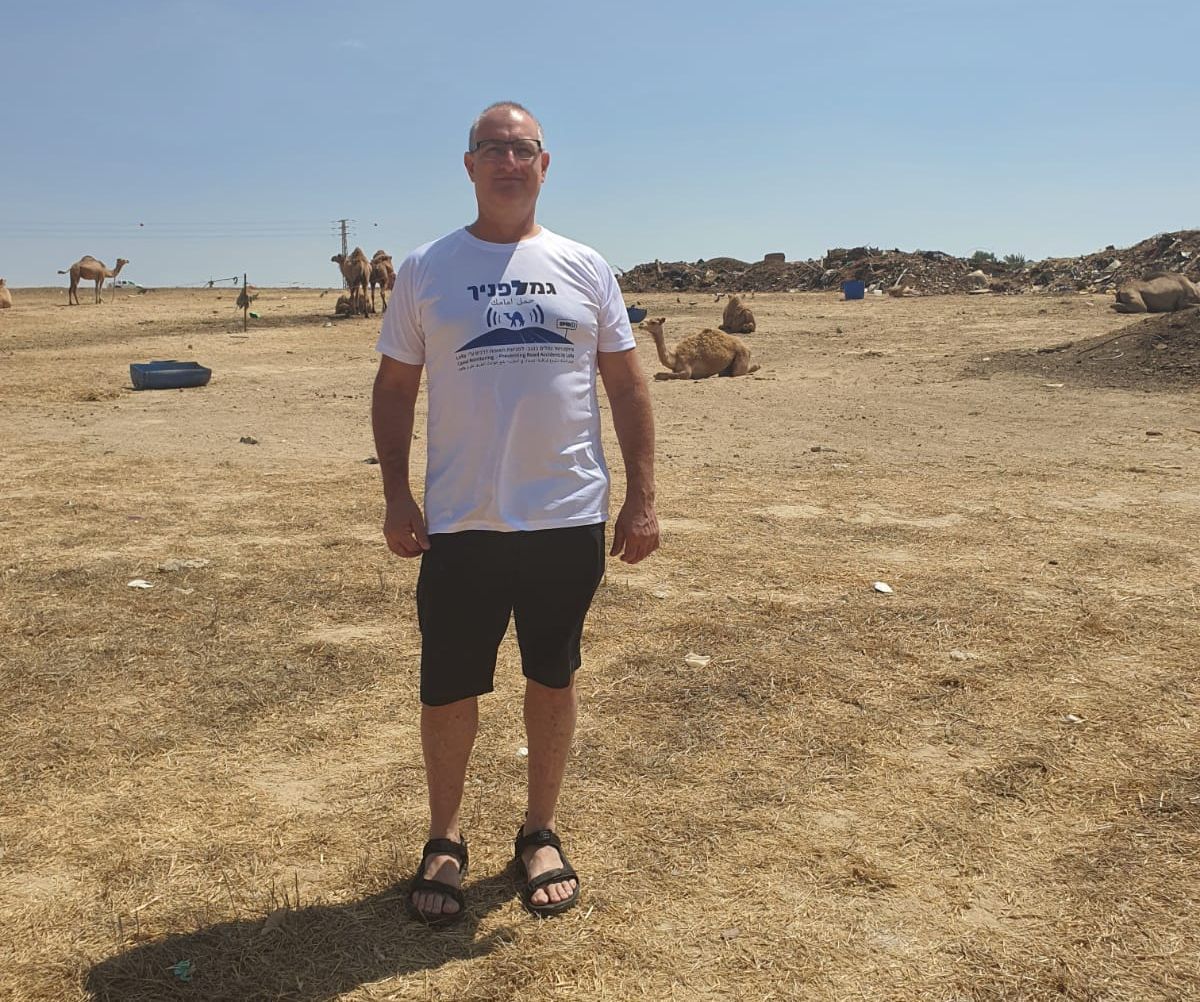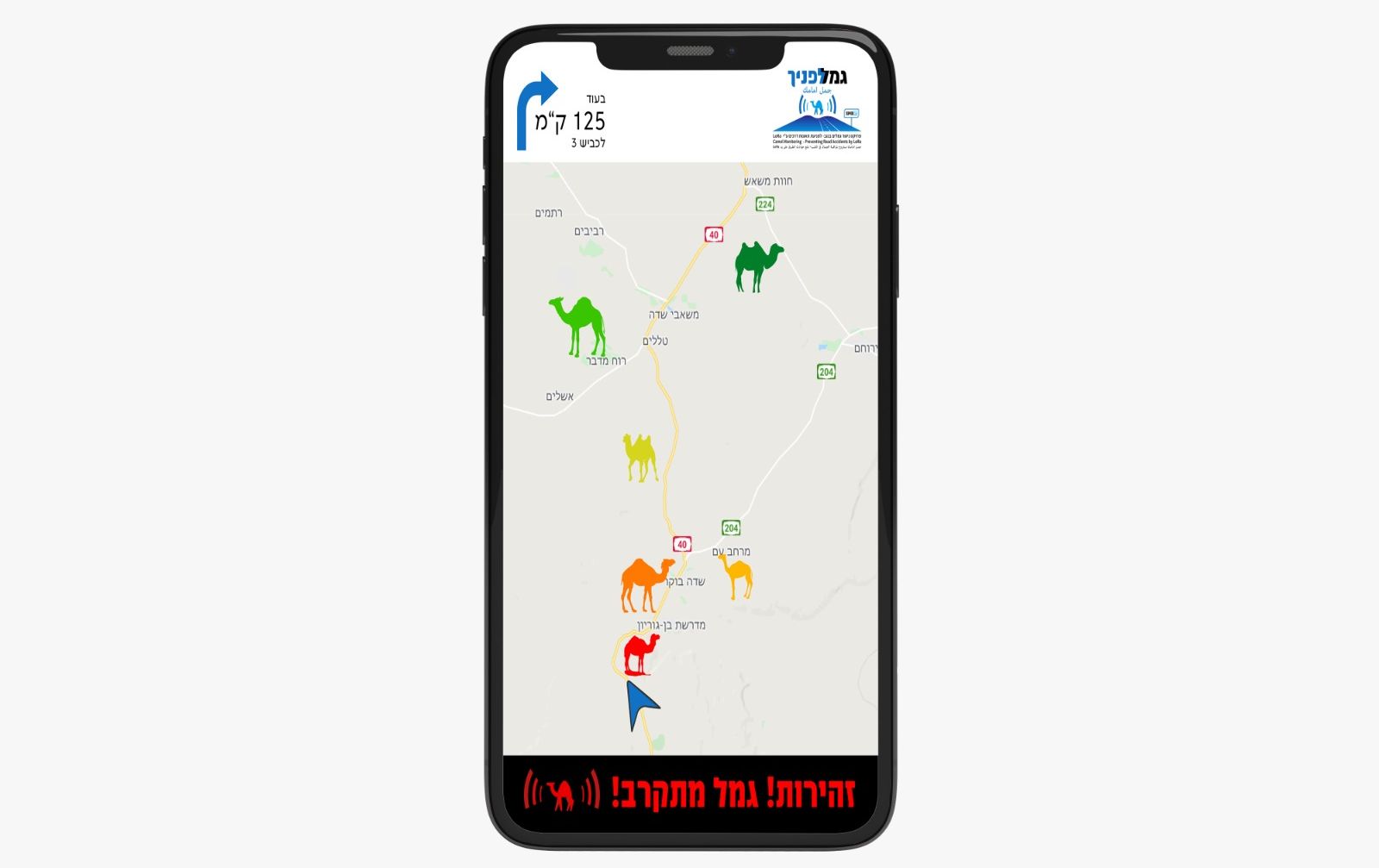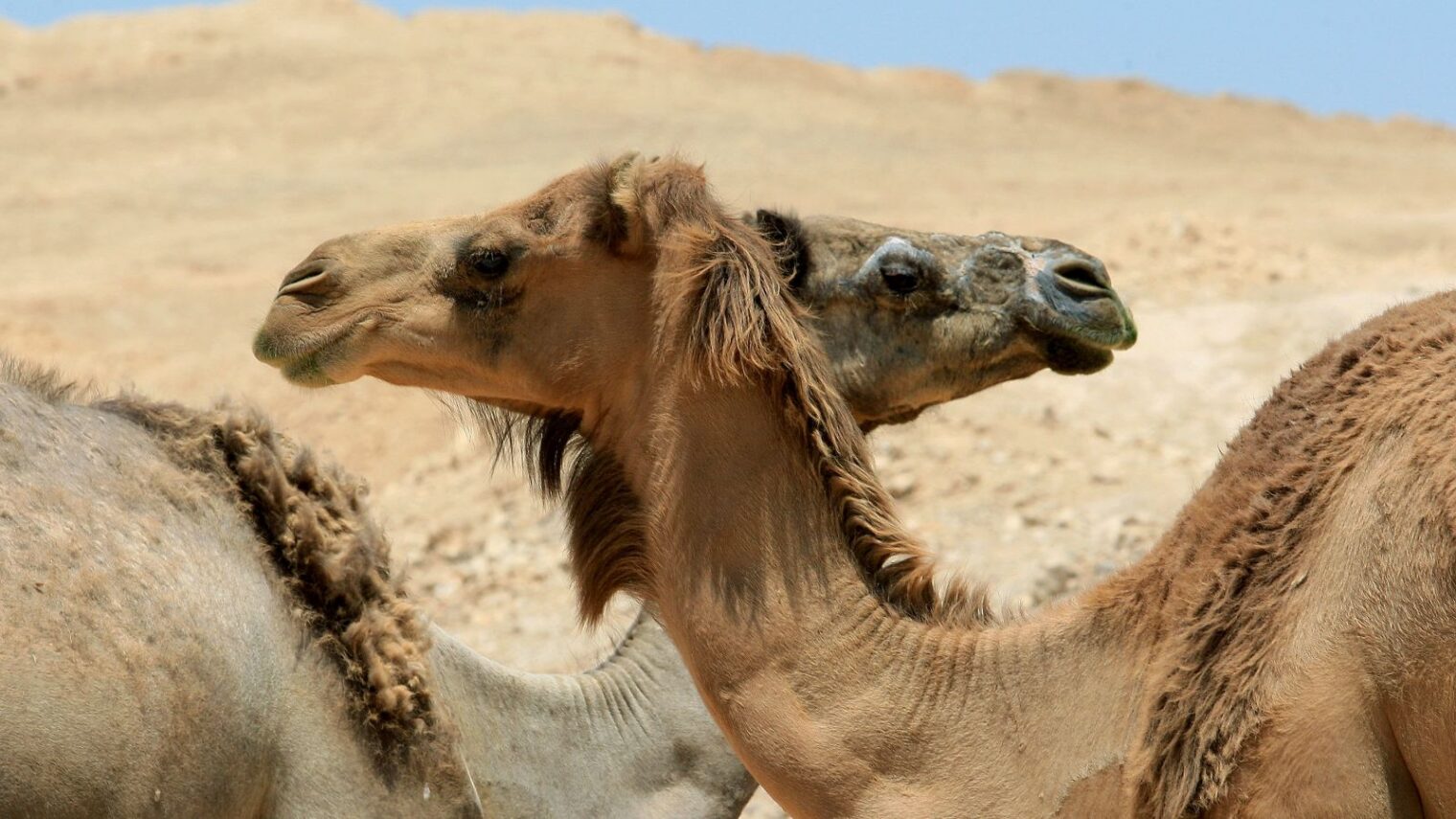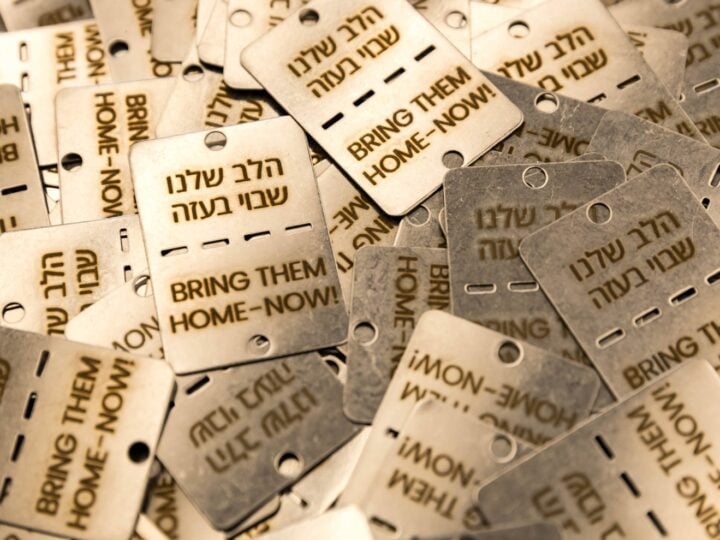Long before Israel conjured an image of technological prowess and entrepreneurial spirit, it was more often associated with desert, sand and the odd camel or two.
And while the country nowadays is revered as the Startup Nation, the camels are still around. And not only that, but they continue to be a deadly threat to drivers in the south of the country.
Entrepreneurs Yoav Ludmer and Ayman El-Sayed harnessed the Startup Nation spirit to tackle this issue.
They created an IoT platform that monitors moving objects to prevent camel-related motor vehicle accidents.
The project took off when Ludmer, the CEO of communications company SMBIT, met Sayed at the Startup Negev tech accelerator geared for Bedouin entrepreneurs in Israel’s south.
There, the two teamed up and created solar-powered camel collars that transmit their location on a designated network, which notifies drivers of nearby dangers on the road.
“They don’t all roam free, but some of them aren’t kept under tight guard and that’s why they also end up on the road,” Ludmer says of the camels in question.

There are some 10,000 Bedouin-owned camels in southern Israel, he says, and the police receive reports of some 1,000 incidents involving them every year. Once in a while, the encounter turns deadly.
“Our project was split into two parts,” Ludmer explains. “The first was the technological part and the second was to create an incentive for the Bedouins to cooperate with the project.”
On the technological front, Ludmer and Sayed created the solar-powered collar that gives the location of the camel using a LoRa – a low-power, wide-area network – that they’re setting up in the desert.
“The upside of this technology is that it reaches anywhere, and the downside is that it can transmit very little information,” Ludmer explains.
This is a perfect fit for their solution, which requires only simple transmission from IoT sensors and not, for example, more complex information such as sound or video, across a wide area largely devoid of other communication networks – as anyone trying to get cell reception in the middle of the desert can tell you.

Another advantage is the solar-powered aspect of the solution.
“In the case of camels and also of herds of cows and sheep and all the livestock, there’s a collar that’s electrically charged from the sun, so theoretically there’s no need for maintenance,” Ludmer says.
“The second part was to talk with the camel owners, and we reached an outline that could interest them,” he says. “A camel costs between $2,344and $2,930, so it’s an asset that has a lot of value.”
The camel-tracking and driver-notification system is not yet commercialized. It is currently at a pre-alpha development stage and the two entrepreneurs have yet to turn to Waze, Google Maps or the like to offer their solution.
“If they’d want to cooperate, that’s great,” Ludmer says.
But Ludmer and Sayed are also thinking that car insurance companies may agree to offer the service to drivers in return for reduced insurance rates – a solution reminiscent of perhaps the greatest Israeli startup success, Mobileye, whose sensors changed the world of driving.
While the solution awaits permission from the Communications Ministry to use the frequency required for it, Ludmer and Sayed are already thinking how to expand beyond camels.
“We believe that we could slowly add more verticals and give an indication of different hazards on the road, such as cyclists,” Ludmer says. “We give a virtual protective layer to all users on the road.”
In the meantime, he says, the response to their idea has been great.
“It seems to speak to the hearts of many people, because it’s a combination of technology, saving lives, and cooperation between Jews and Bedouins,” he notes.
The camels, too, must be pleased.
For more information, contact Yoav Ludmer here.
















